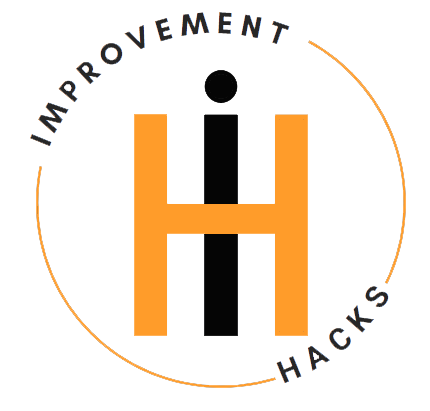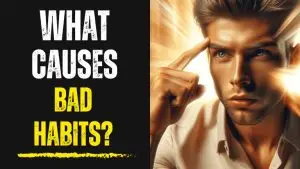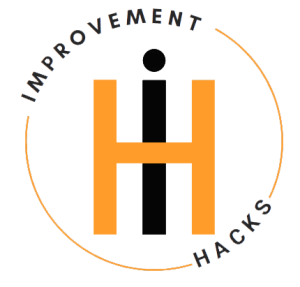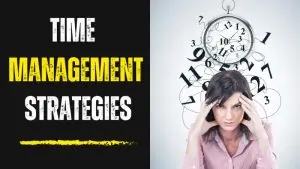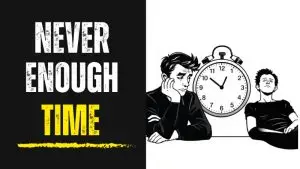Bad habits are those repeated actions or behaviors that we often find ourselves doing over and over.
They can end up harming our health, eating up our time and energy, and even spoiling our relationships with others.
So what keeps us doing them over and over again?
And what is the root cause of these bad habits?
Bad habits don’t just appear out of the blue; they are formed because of specific triggers.
So it’s not just about lacking a bit of self-control.
Therefore, if you’re thinking of kicking a bad habit (which is an excellent decision, by the way), it’s important to know what sparks these unwanted behaviors.
Understanding the Bad Habits Loop
Charles Duhigg, in his insightful book “The Power of Habit: Why We Do What We Do in Life and Business,” introduces a simple yet powerful concept called “The Habit Loop.”
This loop begins with a cue, which is something that triggers our brain to start a habit.
Then comes the routine, this can be in the form of a physical action, a thought, or even an emotional reaction.
Finally, there comes a reward, which tells our brain whether or not this habit is worth remembering for us to use in the future.
Duhigg explains as we repeat this cycle – cue, routine, reward; again and again, it starts to become more automatic.
The connection between the cue and the reward gets stronger, building up to a sense of anticipation and desire.
So the reason we tend to stick with our bad habits is because they give us rewards that seem really good at the time.
Even though we know they’re bad for us, they once gave our brain a feel-good signal (a bit like a hit of dopamine); making our subconscious think these habits are helpful.
Take, for instance, checking your phone.
You might find yourself reaching for your phone when you’re bored or have some free time, as scrolling through your social media provides a sense of connection.
Yet, you’re also aware it can be a big distraction and hurt your productivity.
Tackling Boredom and Stress
Boredom and stress often lead us to form bad habits.
But it’s important to realize that these feelings might come from deeper problems that need our attention if we really want to change our habits.
The Influence of Others
Sometimes, we pick up bad habits simply because we see everyone else doing them.
We know that these actions aren’t good for us, but they’ve become so common and accepted that people justify them.
When we’re trying to fit in with a group or be generally accepted, we often find ourselves copying what others are doing.
Identifying a Bad Habit Trigger
There are five key types of triggers that can lead to a bad habit: the environment or location you’re in, the time, your emotional state, the people around you, and the action you do right before the habit.
The place where you happen to be in and the time of day can greatly influence your habits.
For example, you might find yourself drinking too much when you’re in a bar on weekend nights.
Your emotions play a big role in habit formation too.
You might reach for sugary drinks when you’re tired, or spark up a smoke when you’re stressed.
The company you keep can affect your habits as well.
Think about who you’re with when you give in to a bad habit.
Maybe you only have a smoke when you are around certain friends, or binge-eat when you’re by yourself.
And, the actions you do just before a habit can trigger them as well.
For instance, you might have a habit of checking your social media right after turning off your morning alarm, or drinking a soda as soon as you turn on the TV in the evening.
Sorting Them Out
There are certain things that can set off or shape our bad habits.
Quite often we don’t realize we’ve even developed them, because they seem to make our brains run on autopilot, skipping over our logical thinking.
We normally become aware of them only when someone points them out to us, or when we have to face some form of consequence.
Once we understand that these habits are more harmful than helpful, it’s crucial that we get to work on starting to change them.
The first step is to be honest with yourself and recognize what it is that triggers these bad habits.
After that, you can start altering your surroundings and routines to make these triggers less automatic.
